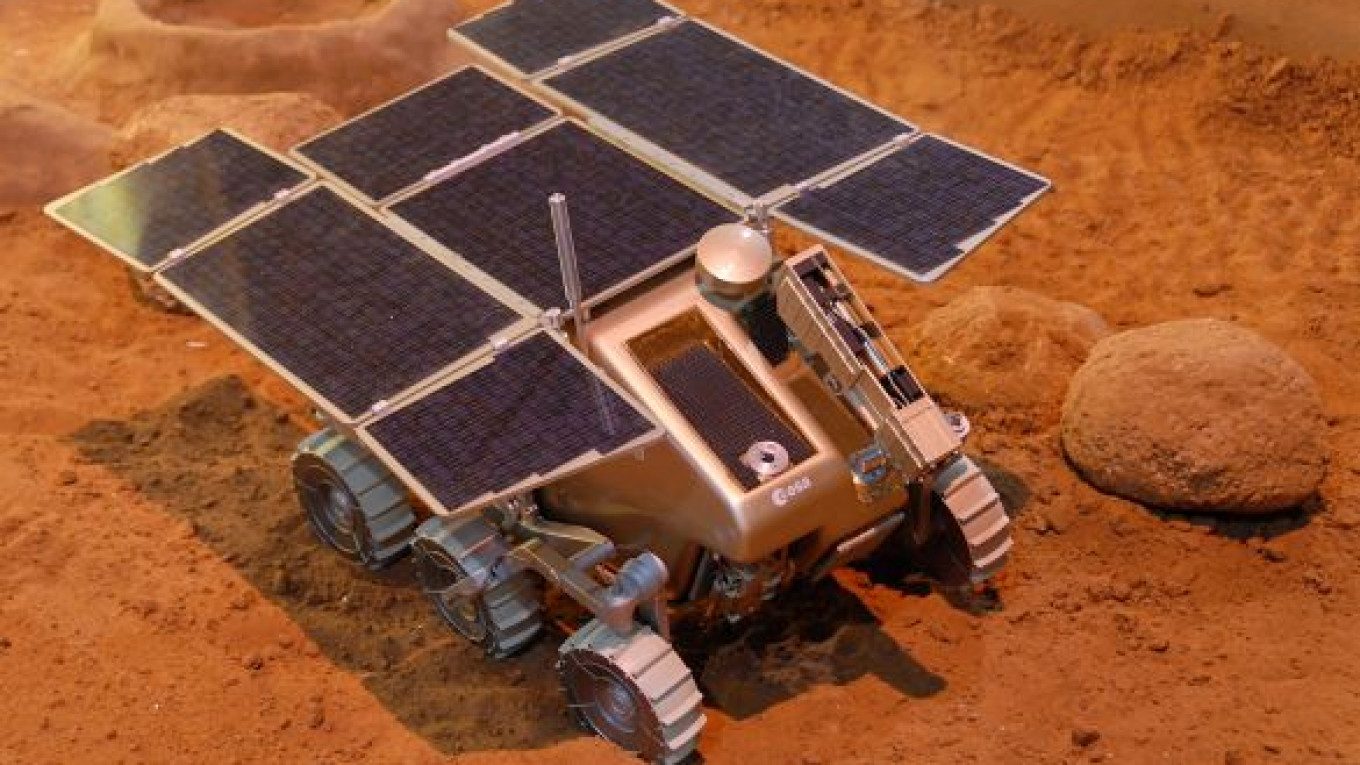The Federal Space Agency and the European Space Agency on Thursday formally agreed to join forces to explore Mars in a project that will cost at least an estimated $1.8 billion.
The Federal Space Agency will contribute equipment, including rockets, and launch services for two robotic missions as part of a program called ExoMars, it said in a statement.
Space agency chief Vladimir Popovkin and his European counterpart Jean-Jacques Dordain met at the European Space Agency's headquarters in Paris to seal the partnership, which aims to send the next rover to Mars in 2018.
An earlier mission, in January 2016, seeks to launch an orbiter to the Red Planet.
"Today's signature … provides the basis for industry and scientific institutes to begin full cooperation on the missions and to meet the challenging schedule," the European agency said in a separate statement.
As its highest scientific priority, ExoMars will attempt to establish whether life ever existed on Mars, a goal it described as one of the outstanding scientific questions of our time.
ExoMars draws funding from 14 member states of the European Space Agency and is expected to cost the agency about $1.5 billion. As of November, contributors had committed about $1.1 billion.
In addition to two Proton carrier rockets, the Federal Space Agency, also known as Roscosmos, will be responsible for supplying Briz-M boosters, the 2018 descent module and surface platform.
Federal Space Agency spokesman Alexei Kuznetsov said the Federal Space Exploration Program would finance Russian efforts as part of ExoMars.
Alexander Ilyin, who covers the issue for industry magazine Novosti Kosmonavtiki, said it costs at least $150 million to launch one Proton rocket.
He said Russia is also slated to provide valuable technology. "A landing module is a very big contribution to the project," he said. NPO Lavochkina is the company that will develop and build the module.
Both partners will also supply scientific instruments and will cooperate closely in the scientific exploitation of the missions, according to the European Space Agency statement.
The Russian Academy of Sciences' Institute of Outer Space Research will furnish the instruments.
"This is a momentous occasion for the ExoMars program that will see industry and scientists from Europe and Russia working together on these two exciting missions, which will develop new technologies ?€¦ and address the key question of whether life ever arose on Mars," Dordain was quoted as saying in the European agency's statement.
Russia was keen to join the European Mars exploration plan after its own interplanetary mission to Phobos, one of the moons of Mars, failed at the end of 2011. The Fobos-Grunt craft crashed back to Earth after a rocket malfunction.
"It then became clear that our instruments could travel near Mars only on someone else's spacecraft," Ilyin said.
The Federal Space Exploration Program does not call for missions to Mars until some time after 2020, he added.
The Paris agreement also secures partnership in exploring the Moon, Jupiter and its satellites.
Contact the author at medetsky@imedia.ru
A Message from The Moscow Times:
Dear readers,
We are facing unprecedented challenges. Russia's Prosecutor General's Office has designated The Moscow Times as an "undesirable" organization, criminalizing our work and putting our staff at risk of prosecution. This follows our earlier unjust labeling as a "foreign agent."
These actions are direct attempts to silence independent journalism in Russia. The authorities claim our work "discredits the decisions of the Russian leadership." We see things differently: we strive to provide accurate, unbiased reporting on Russia.
We, the journalists of The Moscow Times, refuse to be silenced. But to continue our work, we need your help.
Your support, no matter how small, makes a world of difference. If you can, please support us monthly starting from just $2. It's quick to set up, and every contribution makes a significant impact.
By supporting The Moscow Times, you're defending open, independent journalism in the face of repression. Thank you for standing with us.
Remind me later.


